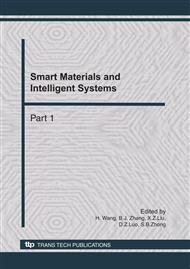p.1022
p.1027
p.1031
p.1036
p.1041
p.1046
p.1051
p.1056
p.1059
Supply Chain Equilibrium under Asymmetric Information Based on Information Transparency Model
Abstract:
In a supply chain, different companies have different, even conflicting goals and make decisions based on their own profit, so the asymmetric information can be found everywhere. The informed party may withhold or convey wrong information, and the uniformed party wants to get it or verify it. The screening and signaling increase contract cost and decreases supply chain efficiency. Hence, the asymmetric information is the main cause which leads to non-coordination. The information transparency model is built to analysis the game process among the players in the supply chain under the asymmetric information, and the condition of supply chain equilibrium is also discussed in this paper.
Info:
Periodical:
Pages:
1041-1045
Citation:
Online since:
October 2010
Authors:
Price:
Сopyright:
© 2011 Trans Tech Publications Ltd. All Rights Reserved
Share:
Citation:


